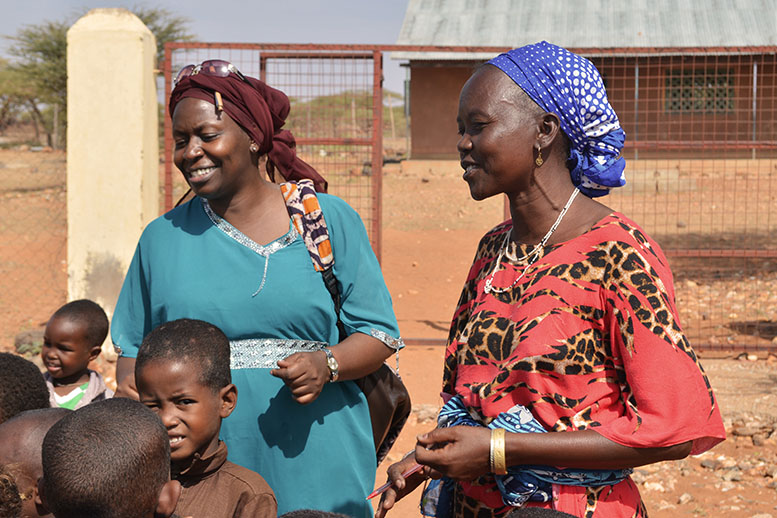Fast Facts
The Challenge
Teacher quality is the most important determinant of learning outcomes at school level. Teachers are often either unqualified, or unsupported by good quality professional development. Technology has the potential to address issues of scale, equity and quality in TCPD.
Our Goal
To improve learning outcomes for 100 million children by strengthening the evidence base for teacher professional development in low- and middle-income countries.
School-based “Community of Learning” approaches to teacher professional development have been shown to work at small scale and create improvements in pedagogy, teacher subject knowledge, and teaching efficacy. Scaling-up this best practice could improve learning outcomes for 100 million children in low- and middle-income countries.
EdTech Hub’s Work
Our focus is on strengthening the evidence base on how technology can support high-quality, accessible, and equitable continuous professional development for teachers in low- and middle-income countries (LMICs). Through close alignment with government priorities, including Tanzania’s landmark MEWAKA programme, we generate practical insights into how technology-supported TCPD can improve teaching practice and learning outcomes at scale.
Teacher quality is one of the strongest determinants of learning, yet many teachers in LMICs lack access to effective, ongoing professional development. Our work examines how technology can help address challenges of scale and sustainability, while centring teachers’ agency and the realities of classroom practice.
Beyond MEWAKA, we work with governments in Malawi, Kenya, and Tanzania to evaluate and strengthen national TCPD policies and programmes using context-specific research and evidence. We also explore the implications of emerging technologies, including artificial intelligence, drawing on teachers’ experiences through our Teachers-in-the-Lead Sandboxes to better understand the opportunities and risks for trust, learning quality, and equity.
What Makes an Effective Teacher Professional Development Video?
A practical guide offering key insights to improve practice, along with recommendations for content development tools, templates, checklists, and more.

Related Studies
Learning Briefs and Tools
Getting Teachers Where They’re Needed Most
Insights on Sierra Leone’s GIS-Supported Preference Matching Algorithm, presented by experts from The Learning Generation Initiative, Sierra Leone Teaching Service Commission, Inter-American Development Bank, and Fab Inc.
All Resources on Teacher Continuous Professional Development
Frequently Asked Questions on EdTech for TCPD
How can technology help reach more teachers in low-resource settings?
Technology enables training at scale through mobile phones, tablets, and low-bandwidth platforms, allowing teachers in rural or hard-to-reach areas to access professional development without travelling.
What are Teacher Learning Circles (TLCs) and how can they, with EdTech, support TCPD?
Teacher Learning Circles (TLCs) are small, collaborative groups of teachers who meet regularly to reflect on classroom practice, share experiences, and learn from one another. When combined with EdTech, TLCs can reach more teachers, provide flexible and ongoing professional development.
AI Insights for Teacher Professional Development
Explore EdTech Hub’s AI Observatory, featuring a curated collection of weekly AI trends, research, and tools in TCPD, teacher learning, and the wider education sector.








